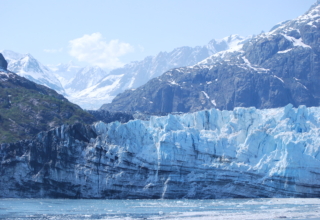
The matter of alignment between our internal world and the external world is particularly prevalent and troubling. If pervasive, this alignment can lead to the emergence of an authoritarian society in which there is one and only one reality. It is a charismatic leader, such as Hitler (in 1930s Germany) or Huey Long (in 1930s America) who can offer words that not only ring in our inner psychic chambers but also lessen our fears and activate our own deeply embedded images. The complex world becomes simple. The threats are clarified—and we are reassured that they will soon cease to exist. The words and images being conveyed by the charismatic leader might hitch on to the peremptory train of ideation proposed by George Klein. If there is a social or collective unconscious, the images embedded in this unconscious might be activate.
A synergy is produced which leads us to rely solely on the reality being conveyed by this leader. We no longer need to devote time and energy to surfacing our internal expertise. We no longer need to think slowly. Instead, we sit back or we march forward—propelled by the external message regarding what is “really” happening in the world and what actions we should take collectively to address those elements of the “real” world that need to be corrected or eliminated. Our fast-thinking reigns supreme—on behalf of allegiance to the one true leader and one true truth.
The third option requires us to choose a path which is much harder to traverse. As we have proposed in other essays in this series on the crisis of expertise, it is important when engaging this option that we access and make use of our internal sources of information and expertise in conjunction with our access and use of external sources. We engage Kahneman’s slow thinking when discerning what is valid and useful expertise coming from one of our three mental tiers and how this personal expertise relates to and helps to affirm (or disconfirm) the validity and usefulness of this external expertise. Furthermore, as we will be proposing in our companion essay, great wisdom can be found in collective rather than isolated, individual sources of external expertise. This collective wisdom may be a fine complement to the rich sources of expertise that we find inside our self.
____________________________
References
Belenky, Mary and Associates (1986) Women’s Ways of Knowing, New York: Basic Books.
Bergquist, William (2012) Men of Autumn. CreateSpace. ISBN:1480126128.
Bergquist, William (2020) “Leadership and Anxiety: Containment and Metabolism I: Anxiety in a VUCA Plus Environment. Library of Professional Psychology. https://psychology.edu/library/leadership-and-anxiety-containment-and-metabolism-i-anxiety-in-a-vuca-plus-environment/
Bion, Wilfred (1961) Experiences in Groups. New York: Basic Books.
Brothers, Leslie (2001) Mistaken Identity. Albany, NY: State University of New York.
Capote, Truman (1994) Other Voices Other Rooms. New York: Vintage.
Damasio, Antonio (2005) Descartes’ Error: Emotion, Reason, and the Human Brain. New York: Penguin.
Download Article 1K Club














